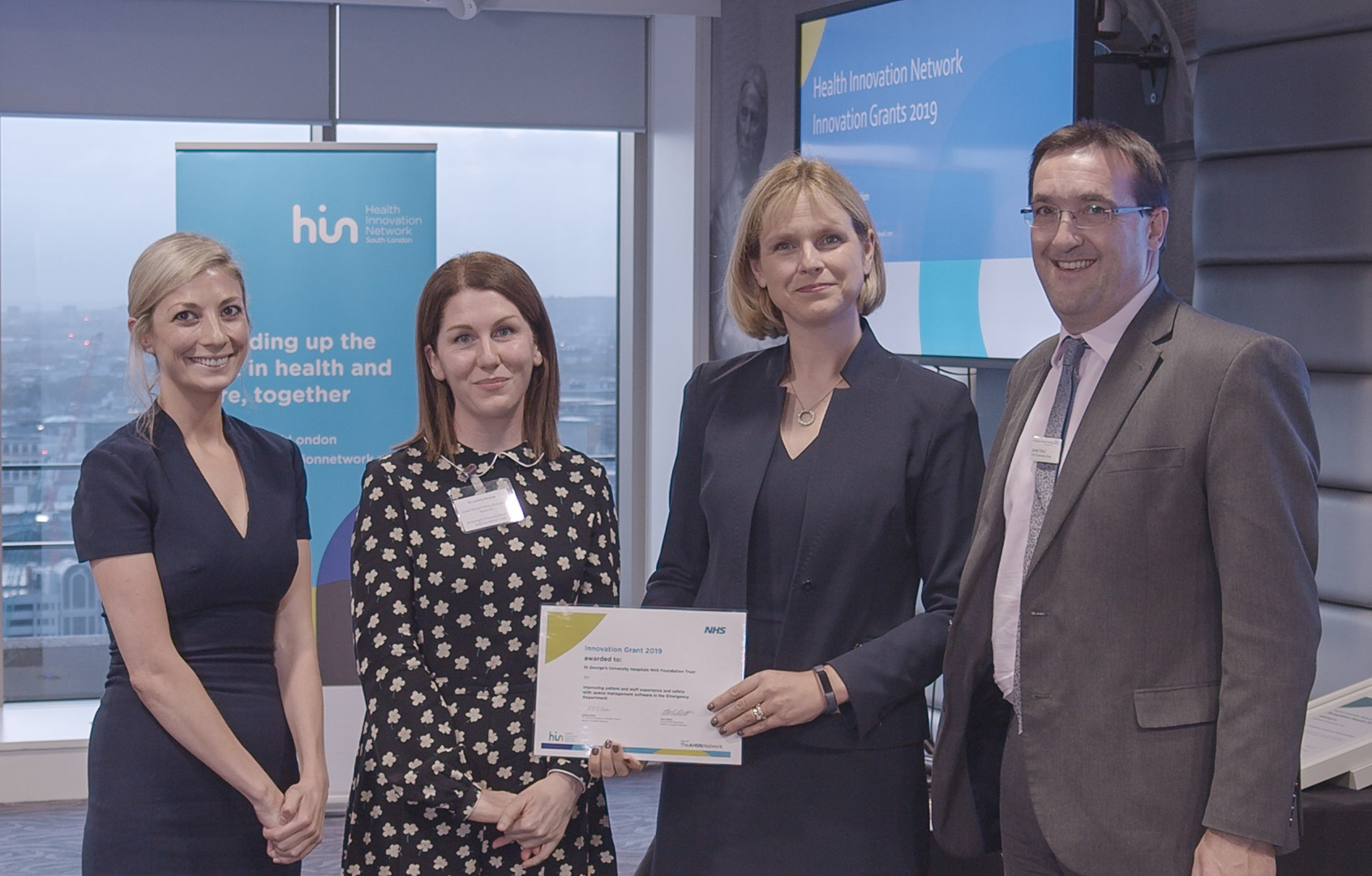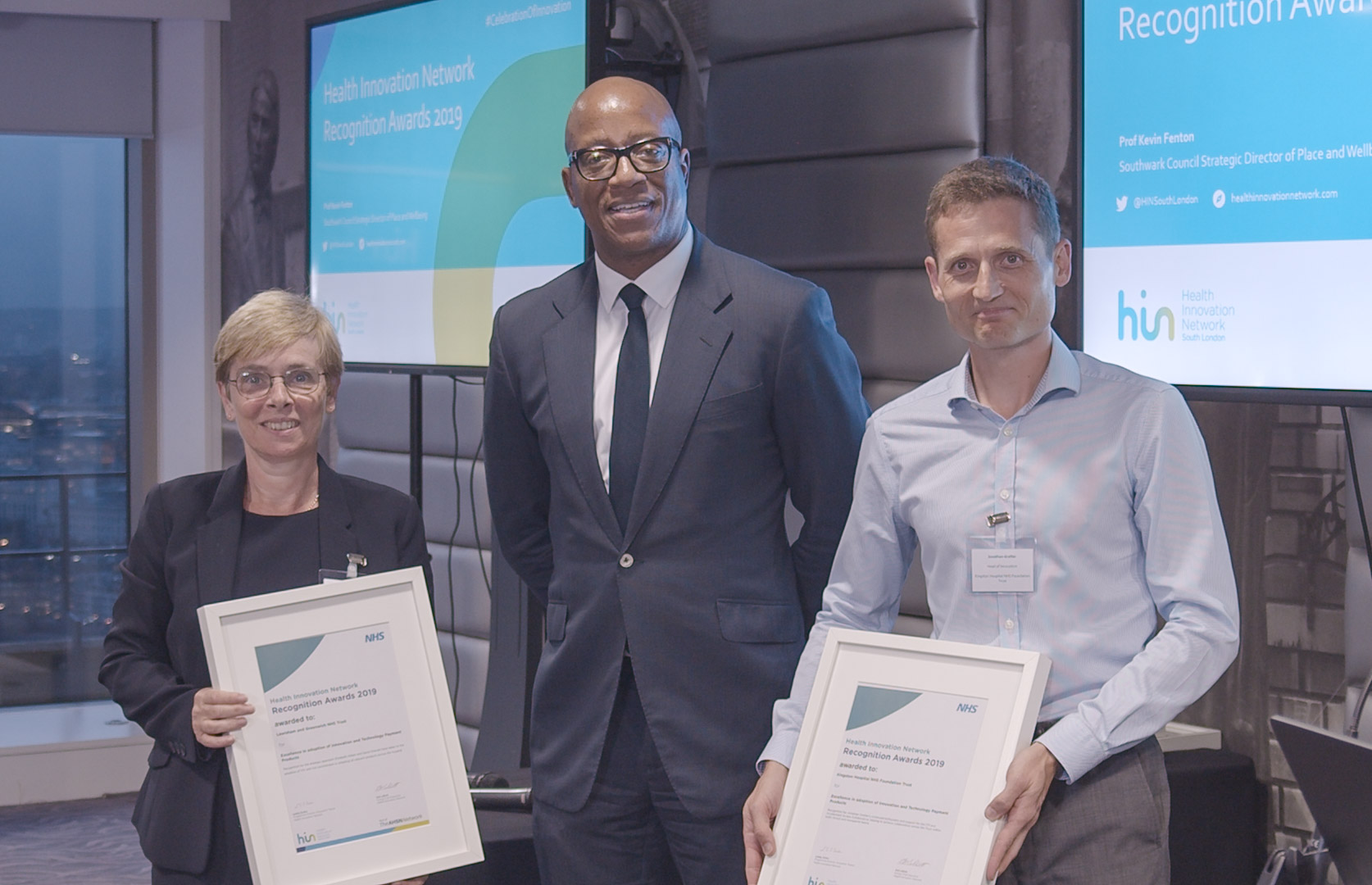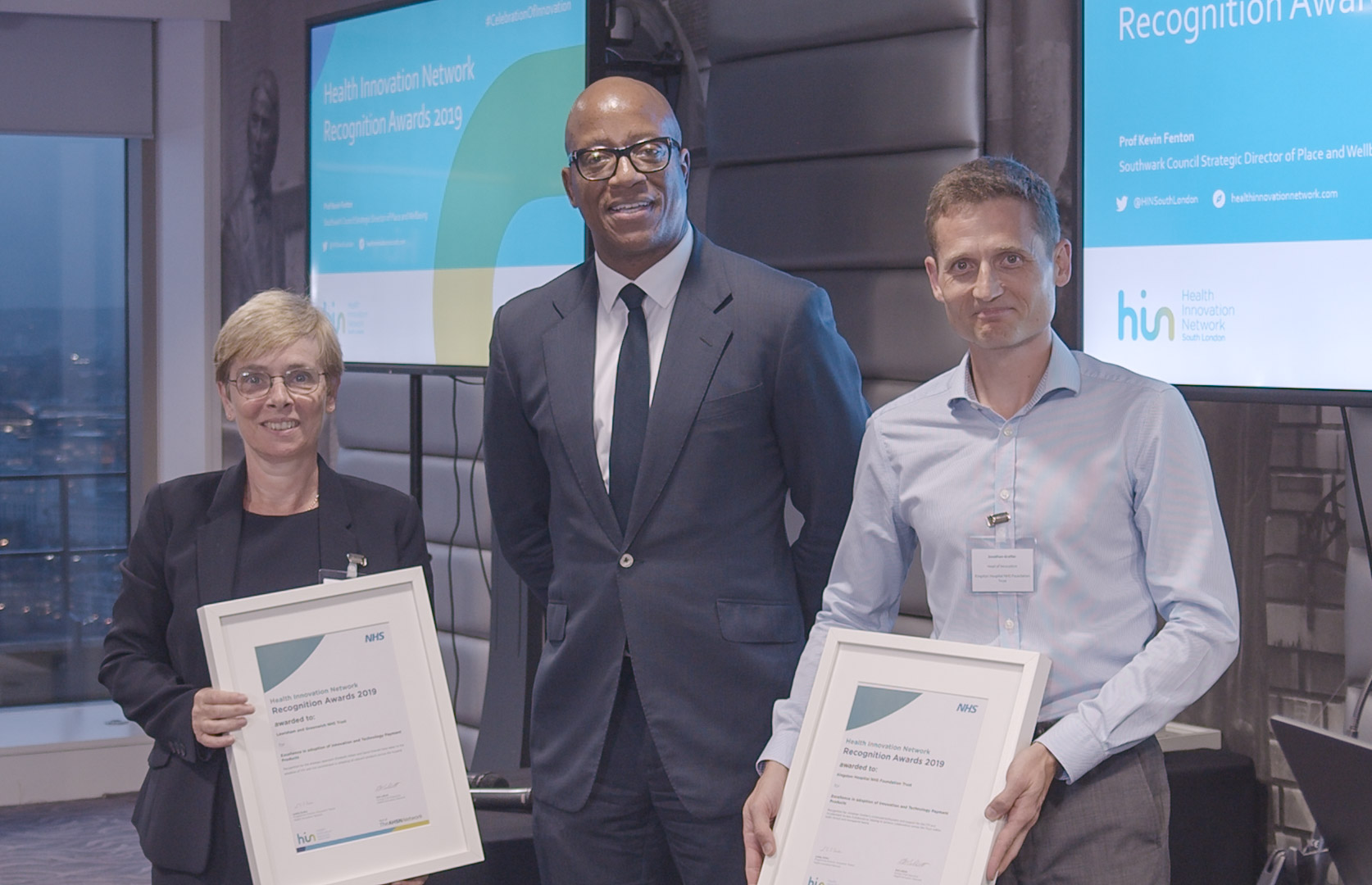Latest innovation projects set to improve care for south Londoners revealed
Ten NHS teams, working with universities and a wide range of partners, have been given vital funding to kickstart innovation projects designed to help health and care teams improve care for south Londoners and help services evolve to meet future health needs. The funding comes from the Health Innovation Network Innovation Grants, which have been announced today.

The innovations that will receive support to spread or be piloted range from apps for women in pregnancy to understand the risk of preterm birth or manage diabetes, to new devices to detect dangerous bleeding, to virtual reality on acute mental health wards to reduce stress and new ways to access mental health support that improve access while taking pressure off primary care. One of the projects will also develop mobile simulation labs for the NHS to test and improve technology.
All of the innovations meet current NHS and care needs – whether by addressing major health challenges such as diabetes, mental health and stroke prevention, or specifically helping the NHS to meet nationwide goals on safety or the NHS Long Term Plan.
Each project has been given up to £10,000 in funding. Small amounts of funding can be crucial for innovation projects to become a reality. NHS teams often struggle to find the initial funding to pilot new ideas in real-world settings to demonstrate the kind of results they need for support for wider roll outs. Academic Health Science Networks like the Health Innovation Network play a crucial role by helping these projects prove themselves in real world settings before going on to spread across the NHS where successful.
The winners were chosen after a rigorous selection process from an expert panel. In total 68 applications were received, with ten selected to receive funding.
Zoe Lelliott, Chief Executive at the Health Innovation Network, said:
“When it comes to innovation we have no shortage of great ideas in the NHS. What we often lack is the initial finance needed to get a new idea off the ground, and to generate evidence of outcomes so that others will support the project. The projects we’re supporting today are truly exceptional and stood out to us as highly innovative approaches that meet pressing health and care needs. We’re looking forward to working with these teams to turn these ideas into real benefits for local people.”
Dr Lindsey Bezzina, Junior Clinical Fellow, Emergency Medicine, St George’s University Hospitals NHS Foundation Trust, who has won an award to develop visible electronic queues in hospital emergency departments to improve patient experience and reduce pressure on staff, said:
“We are passionate about trying new ways to improve patient experience and safety and we believe better queue visibility will give patients reassurance and free up reception team time. Emergency departments are pressured and all you want is to do the best for patients. It’s difficult at the moment when we can’t easily answer their top question: when will I be seen? With relatively simple technology we believe we can answer this and make a huge difference to their experience, as well as supporting our staff. Technology and innovation will allow us to answer this and more. We’re well supported by our colleagues and leaders to innovate and try new ideas: this funding is additional piece of the puzzle we need to propel our project to the next level.”
Dr. Nicola Jones, a GP and Chair of Wandsworth Clinical Commissioning Group, whose team has won an award for mass screening in Wandsworth to prevent strokes and reduce health inequalities, said:
“The people of Wandsworth can look forward to a new and innovative local approach to stroke prevention. At the moment, over a third of people invited for a health check do not attend. We’re using this funding to kickstart an innovative new collaboration between Wandsworth community leaders and the health service, working hand-in-hand with local groups to get our services to those who need them most. By targeting hard-to-reach communities we will reduce health inequalities and we expect this award to be the first step in developing a new approach to screening that will benefit the communities we serve.”
The ten teams will be supported by the Health Innovation Network over a 12 month period to develop their ideas and pilot them in south London.
The winning projects receiving support to expand, pilot or develop further are:
1. Diabetes Prevention Decathlon, South West London Health and Care Partnership
2. Engage Consult – Digital Self-Referral for MSK, Oxleas NHS Foundation Trust
4. Creating a toolkit for effective implementation of the QUiPP app, King’s College London & Guy’s and St Thomas’ NHS Trust
5. Transforming delivery of antenatal care in gestational diabetes, Kingston Hospital NHS Foundation Trust
6. CRADLE Scale up South London: Effect of a novel shock index early warning system on recognition and management of the compromised bleeding woman, King’s College London & Guy’s and St Thomas’ NHS Trust
7. Improving Patient and Staff Experience and Safety with Queue Management Software in the Emergency Department, St George’s Universitys Hospital NHS Foundation Trust
8. Simulation Lab for Health Technology Development and Adoption: Discovery project, Oxleas NHS
9. Lewisham Primary Care Recovery College Pilot Project, South London and Maudsley NHS Foundation Trust
10. Virtual reality relaxation and coping skills for reducing stress and challenging behaviour on acute psychiatric wards, South London and Maudsley NHS Foundation Trust






